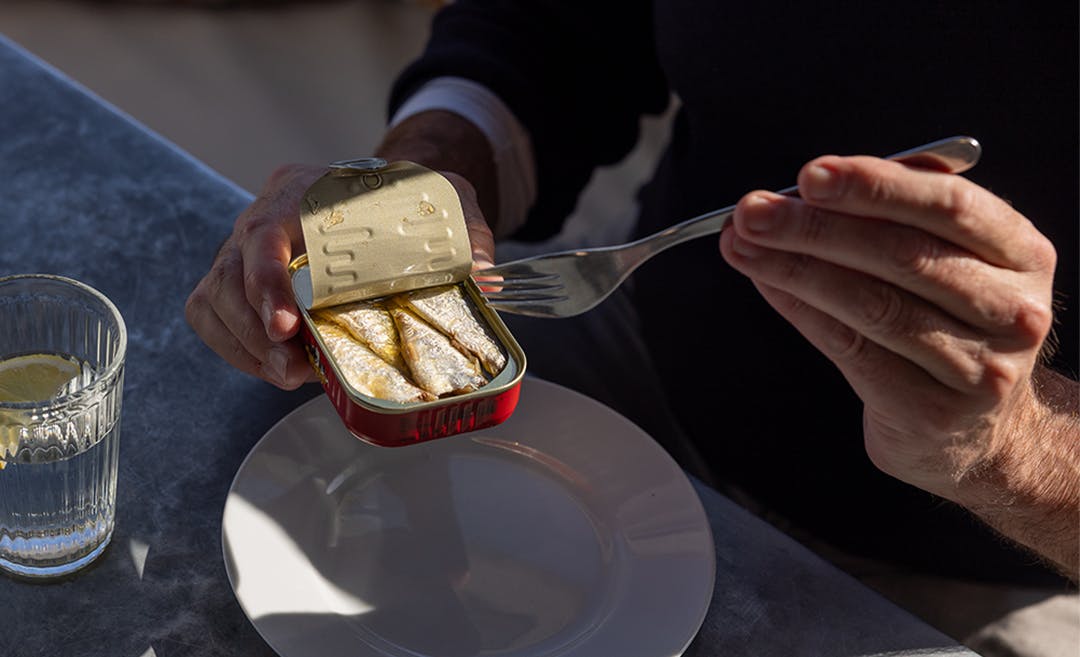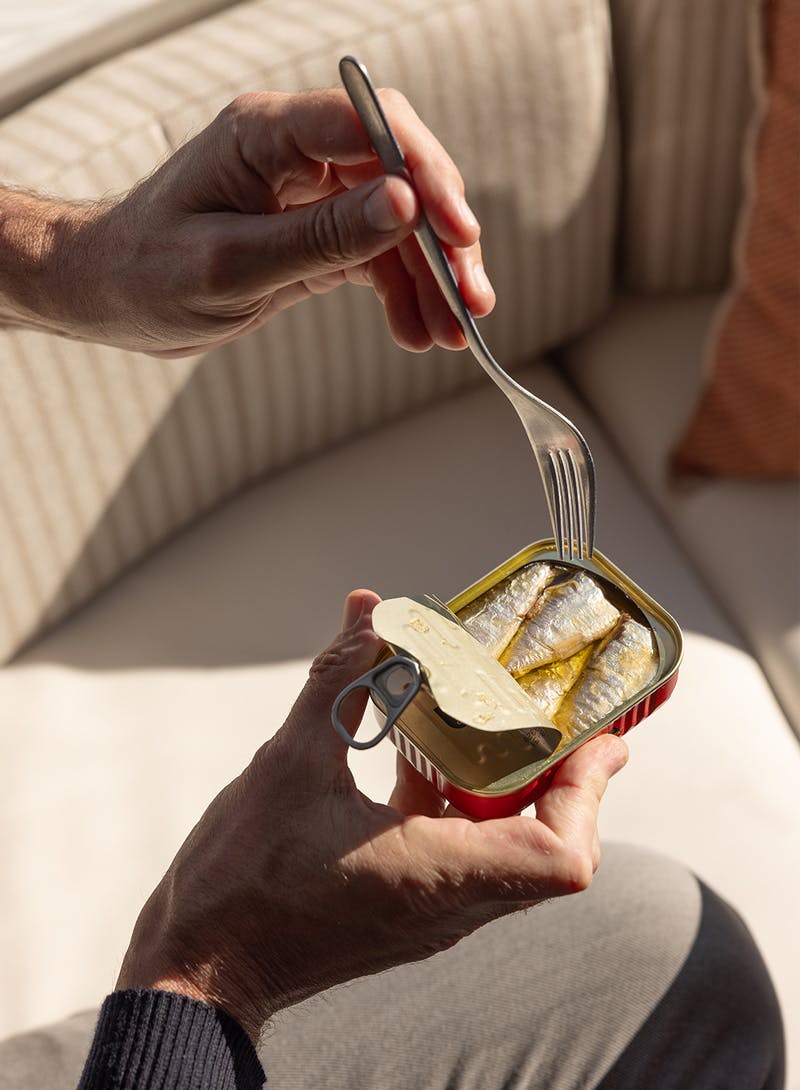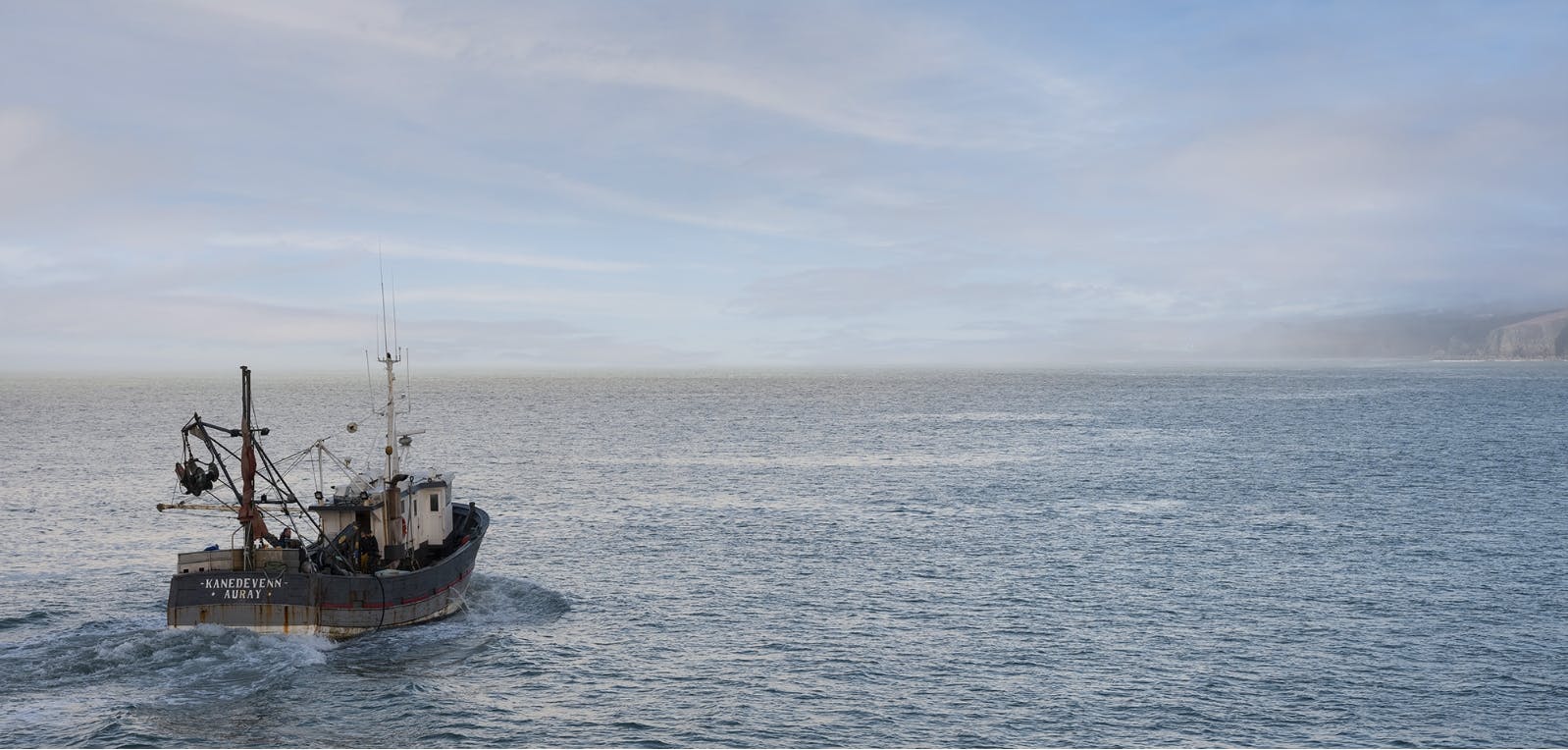The benefits of fish

Fish is a concentrate of nutrients not found in this way elsewhere, an essential food family in the quest for a balanced diet and a valuable source of nutrition for humans. Discover its benefits for the body!
The good fats in fish: the best source of omega-3.
The fats found in fish are considered good fats because they are highly unsaturated and low in cholesterol, unlike saturated fats, of which the consumption increases the risk of cardiovascular disease (*).
The fatter the fish, the higher its omega-3 content, as in the case of sardines and mackerel, which are particularly rich in omega-3s. In these fish, lipids are distributed in cells throughout the body and are therefore abundant. In lean fish, on the other hand, lipids are only stored in the liver, the main energy reservoir, so the fat content is relatively low and the nutritional value lower.
Omega-3s play a vital role in human metabolism, but our bodies cannot produce them on their own. So we have to get them from our food.
Their function is to :
- ensure the proper functioning of the brain and eyes, ensure brain development in infants and children, maintain mental health, prevent age-related macular degeneration (*)
- promote good cardiovascular health, reduce the amount of triglycerides in the blood, lower blood pressure in people with high blood pressure, reduce cardiovascular mortality in people with heart disease (*)
- ensure proper functioning of the immune system, counter inflammation in the body, and therefore reduce the risk of common inflammatory diseases (*)

Complete proteins with 9 essential amino acids
Fish proteins are said to be complete because they contain all 9 essential amino acids that the human body cannot produce on its own.
Amino acids make up 20% of our body. They are the most important element after water, which makes up 60% of our body. By binding together, their function is to :
- form the proteins of our own body (muscles, bones, skin, hair, nails) (*)
- supply the body with energy when carbohydrate reserves are depleted (*)
- regulate the body's essential functions and various physiological processes, such as hormone production (*)

Abundant vitamins and minerals Fish is very rich in vitamins and trace elements.
Fish is very rich in vitamins and trace elements, molecules that are essential to our bodies but in minute quantities. Here are the vitamins and trace elements it contains, and their functions:
VITAMIN A : stimulates visual acuity, regulates cellular functions and acts as an antioxidant by trapping free radicals (*)
VITAMIN B3 or niacin: contributes to the proper functioning of the nervous system and the normal activity of psychological functions, maintains mucous membranes and skin, promotes energy metabolism and reduces fatigue (*)
VITAMIN B12 or cobalamin: contributes to the proper functioning of the immune system and nervous system, normal formation of red blood cells, normal activity of physiological functions, promotes energy metabolism and reduces fatigue (*)
VITAMIN D: absorbs the calcium needed by our teeth, bones and tissues, ensures good nerve transmission and blood coagulation (*)
IRON: essential for red blood cells, muscles and DNA, fights anaemia, fatigue and infections (*)
IODE : trace element essential for the production of thyroid hormones, regulates weight, memory and mood (*)
PHOSPHORUS : mineral contributing to energy metabolism, maintenance of bones and teeth, normal functioning of cell membranes (*)
SELENIUM: antioxidant, stimulates the body's defences, protects cells against infection, promotes healthy liver, heart and spermatozoa, maintains muscles (*)
ZINC: antioxidant, protects against free radicals, promotes cell renewal and healing, stimulates the immune system (*)
And for canned fish in oil :
CALCIUM: the most abundant mineral in the human body, essential for the skeleton and the body's essential functions (*)
VITAMIN E (contained in the oil): antioxidant, protects the cardiovascular, nervous and hormonal systems, promotes healthy blood coagulation, preserves the reproductive system and fertility (*)

The composition of fish varies not only from one species to another, but also from one animal to another, depending on its environment, diet and maturity.
When it comes to fishing, this means respecting the seasonality of each species. Not only to preserve the species, but also to get the best possible nutrition. During migration or spawning, fish use up a lot of energy by drawing on their lipid reserves. The fish will be leaner, and therefore less beneficial to the human body.
Although fish can satisfy human nutritional needs, and can therefore play a key role in nutrition, fish resources, like all raw materials, are not infinite. That's why we need to protect species by fishing as sustainably and with as little impact as possible.
Our commitment to sustainable fishing.
At la belle-iloise, we work with different types of fish and all are caught in season while respecting the minimum catch size. We do not fish juvenile fish or endangered species, nor do we fish during the breeding season.
We also pay close attention to the fishing methods used , favouring those that have the least impact and are most respectful of the species and the seabed, such as bolinche fishing for sardines or pole and line fishing for tuna. We refuse all fishing using FADs (Fish Aggregating Devices) as they are detrimental to the preservation of species.
Responsible sourcing
We prefer to source our fish as close as possible to Quiberon. Depending on fishery resources, scientific recommendations and the fishing methods used, our fish come first from Breton waters, then by extension from the North-East Atlantic (FAO area27) or the South-East Atlantic (FAO area47), before moving on to other seas depending on the species and quality required.
Finally, because fish is a precious resource that cannot be wasted, we always source the right quantities according to our current production capacity .

Important : Nota Bene
This article is fully in line with our aim to inform you as transparently and honestly as possible about the issues that affect us. Its aim is to raise awareness of the need for a healthy diet, both for the human body and the environment.
Based on data and interpretations published by ANSES, WHO and FAO, the information we provide should not be taken as medical advice. What's more, a virtuous diet cannot be understood without regular physical activity: this is the aim of the "Eat better, move more" campaign promoted by the French National Health and Nutrition Programme (PNSS). If you have any questions about your health, talk to a doctor or professional therapist.
(*): Source: ANSES (Agence nationale de sécurité sanitaire de l'alimentation, de l'environnement et du travail), WHO (World Health Organisation) and FAO (Food and Agriculture Organisation).
These official health bodies recommend eating fish twice a week, including at least one oily fish with a high omega-3 content (sardines, mackerel, salmon, etc.) to get the daily intake of nutrients needed for a balanced diet.
One portion is equivalent to 100g of fish.
The official nutritional tables for each species of fish are available on the Ciqualwebsite ( Food Quality Information Centre) provided for the public by ANSES.









